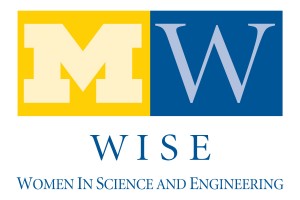The 11th Annual High School GIDAS Research Conference
This year’s conference is on Saturday, April 13, 2024. The theme is Neurodegenerative Diseases.
Keynote Speaker

Anthony Antonellis, Ph.D.
Professor and Chair of the Department of Human Genetics, the University of Michigan Medical School
Date: Saturday, April 13, 2024 (12:00 pm – 5:30 pm Eastern Time | 9:00 am – 2:30 pm Pacific Time)
Location: Hybrid (online or one of the following in-person sites)
– University of Michigan – Ann Arbor, Undergraduate Science Building: Plaza Level
– Scripps Research Institute: 3344 N Torrey Pines Ct
Participants: Open to the public, including middle school students and adults.
Fees:
– General registration fee: $30 (workshops included)
– Presenter registration fee: $40 (includes general registration fee and conference proceedings)
– Accompanying parents: Free ($10 donation suggested)
– Conference proceedings (abstract booklet): $12
If you present, you will…
– Meet professional scientists and connect with peers who share your interest in science
– Grow in professionalism through researching, writing, and presenting on science topics
– Develop public speaking skills in a larger group setting
– Compete for science presentation awards
Registration
The GIDAS Support Committee has put together a short video walkthrough on how to register for the conference, as well as how to submit an abstract and “about me” profile. The video is linked here. Please send this link to your GIDAS members if they have trouble!
| Instructions | Form link | Deadline |
|---|---|---|
| All attendees: 1.) Register for the conference using the form. Edits are accepted until the deadline. 2.) Pay the registration fee below. |
April 8, 2024, 11:59 PM (ET) | |
| Each abstract: Have a single author submit your abstract using the form (i.e. each abstract should be submitted once in total). Abstracts will undergo a review to qualify for oral presentations and to be included in the conference proceedings (abstract booklet). |
Abstract submission | March 17, 2024, 11:59 PM (ET) |
| All abstract authors: Submit your About Me using the form. These will be included in the conference proceedings along with your abstract. |
About Me submission | March 17, 2024, 11:59 PM (ET) |
| Each abstract: Have a single author submit your presentation or poster using the form. |
Presentation submission | April 12, 2024, 11:59 PM (ET) |
Conference Agenda
|
11:30 – 12:00 pm ET (8:30 – 9:00 am PT) |
Check-in |
|
12:00 – 1:00 pm ET (9:00 – 10:00 am PT) |
Workshops – Brain health art: Activity to learn selfcare tools led by Ms. Stephanie Prechter – GEO2R and String-db: Learn computational resources used in the research process – Transition from high school to college: Interact with college students to hear their experiences and to ask questions – miRcore and High School students: Talk with parents led by Dr. Inhan Lee |
|
1:00 – 1:05 pm ET (10:00 – 10:05 am PT) |
Greetings from miRcore President Inhan Lee, Ph.D. |
|
1:05 – 1:55 pm ET (10:05 – 10:55 am PT) |
Student Oral Presentations I – Philip Tesic*, Derek Ryan*. Dysregulation of C1q Complement Genes and Synaptic Pruning in Alzheimer’s Disease *These authors contributed equally to this work. – Caitlin Tsai, Grace Li, Vrinda Iyengar. Investigating the Relationship between Alzheimer’s Disease and Nicotine – Aarith Veerabhadran.Age-related cognitive disorders and cancer: exploration of potential transcriptomic links – Medha Aravind, Jihoo (Stella) Hyun, Kaeya Joshi, Emma Lee, Rohan Ramachandran, Elizabeth Weng, Malia Wilke, Jordan Jarbo. Impacts of CCL and IL Gene Groups on Parkinson’s Disease – Archit Sonaje, Eliana Liu, Ashrita Reddy, Caitlin Dosch, Kimai Dosch. The role of Shigellosis pathway in Alzheimer’s disease – Sahana Srikanth. Using Random Forest to Explore Mechanisms Behind VEGF Signaling in Alzheimer’s |
|
1:55 – 2:10 pm ET (10:55 – 11:10 am PT) |
Break |
|
2:10 – 3:10 pm ET (11:10 am – 12:10 pm PT) |
Poster Session |
|
3:10 – 3:30 pm ET (12:10 – 12:30 pm PT) |
Break |
|
3:30 – 4:15 pm ET (12:30 – 1:15 pm PT) |
Keynote Address: Anthony Antonellis, Ph.D.Professor and Chair of the Department of Human Genetics at the University of Michigan Human Mendelian Diseases: Insights Provided by Studying tRNA Charging Enzymes |
|
4:15 – 4:30 pm ET (1:15 – 1:30 pm PT) |
Break |
|
4:30 – 5:15 pm ET (1:30 – 2:15 pm PT) |
Student Oral Presentations II – Meher Garg, Hailey Dang, Nidhi Narendra. Unraveling Pathways in Alzheimer’s Disease: Insights into Rap1 Signaling Associations with Focal Adhesion and Shigellosis – Maitreyi Bharath, Harriet Lai, Jiho Lee. ALS-induced Gene Dysregulation Increases Blood Glucose & Sodium Levels in Patients – Tanay Panja, Aadit Mathur, Caleb Tang, Aoife Tang, Jayla Chan, Vidha Ganji, Vibha Ganji. Deducing the Role of Antigen Presentation in Autoimmune Idiopathic Parkinson’s Disease – Lana Fargaly. Up-regulation of Cellular Catabolic Processes in Multiple Sclerosis – Sophie Cai, Sarah Li, Nathan John, Ashwin Vemury, Cailyn Liu, Luvya Dhar, Sean Park, Megan Caldwell, Sanvi Patel. Antigen Processing and Presentation Pathway in Multiple Sclerosis Patients – Minjun Kim, Keshavan Badri, Nicholas Sifuentes, Pagie McCulloch, Tanay Dakarapu. Regulation of Ventricular Trabeculations by BMP10: a Promising Target for Alzheimer’s Treatment and Diagnostics |
|
5:15 – 5:40 pm ET (2:15 – 2:40 pm PT) |
2023-24 GIDAS Activity Reports and Conference Awards |
|
5:40 pm ET (2:40 pm PT) |
Closing |
Oral Presentations
We selected 12 oral presentations among abstracts submitted by March 17. We thank all, abstract judges, for their scoring the abstracts. Certificates will be given to the best three presenters/groups based on their scores.
Poster Presentations
All virtual poster presenters (including Honorable Mention) should prepare a six-minute (maximum) presentation to pitch their research to conference attendees (flexible format; simply deliver the content in an engaging way).
Poster Examples Here
Poster Judges
These professionals will engage each poster presenter in a discussion about their research and provide feedback.
Popular votes
The general audience will also vote on poster presentations.
Certificates
Certificates will be given to the best three poster presenters/groups as graded by the judges; the three most popular posters, as selected by conference attendees, will also receive certificates.
Conference Proceedings

2024 cover designed by Stephanie Prechter
If you want to publish your abstract in the conference proceedings, please submit your research abstract and your “About Me” with your picture in Word (.docx) format by March 17, 2024 (refer to “Abstract Submission” below).
Even if you miss the deadline to publish, you can still bring in your research poster and compete for the poster presentation award. However, you should submit your poster abstract content to us by 11:59 pm, Sunday, March 24, 2024 to be considered for a poster presentation (judge assigned).
2024 Conference Awards
The Best Research – Oral Presentations I
1st: “Using Random Forest to Explore Mechanisms Behind VEGF Signaling in Alzheimer’s” – Sahana Srikanth
2nd: “Dysregulation of C1q Complement Genes and Synaptic Pruning in Alzheimer’s Disease” – Philip Tesic, Derek Ryan
The Best Research – Oral Presentations II
1st: “Antigen Processing and Presentation Pathway in Multiple Sclerosis Patients” – Sophie Cai, Sarah Li, Nathan John, Ashwin Vemury, Cailyn Liu, Luvya Dhar, Sean Park, Megan Caldwell, Sanvi Patel
2nd: “Regulation of Ventricular Trabeculations by BMP10: a Promising Target for Alzheimer’s Treatment and Diagnostics” – Minjun Kim, Keshavan Badri, Nicholas Sifuentes, Pagie McCulloch, Tanay Dakarapu,
The Most Popular Poster
1st: “Upregulation of the IL-17 Pathway in Parkinson’s Disease” – Giselle Haddad, Anvi Jampani, Mariam Jaderson, Caleb Goldstein, Aaradhya Shriastava
2nd: “The Role of the HSV-1 Infection Pathway in Alzheimer’s Disease” – Kate Leitao, Bomin Koo, Grace Yang, Hannah Hu, Grace Song, Alayna Yared, Haasini Changalvala, Anugraka Soundararajan
3rd: “Insensitivity of AMPA receptors resulting from downregulated phosphorylation links Parkinson’s disease and long-term depression” – Rohen Vargo, Claire Lee, Ram Nalluri, Anya Singh, Asha Wojciechowski, Anvika Verma, Kiran Sivasubramanian, Sai Lakkimsetti, Anan Nuengchana
4th: “The Role of Wound Healing In the Pathogenesis of Parkinson’s” – Jons Jaison, Kareem Rashed, Shlagha Kompelli, Yungeun Lee, Ayush Patel, Sashinath Nadigotti, Dhruv Gupta
5th: “Significance of Interleukin-17 Mediated Cell Signaling Genes in Parkinson’s Disease” – Chase Johansson, Summer Su, Ben Magnus, Roshan Kumar
The Best Poster Presentation
In no particular order, perfect scores:
• “Analyzing the Impacts of Defective Oxidative Phosphorylation on Patients with Frontotemporal Dementia” – Ananyaa Srivatsan, Atharv Murthy, Alexander Tseng, Benjamin Ngo, Eryn Yang, Julie Pao, Jayant Bhaskaruni, Andrew Pai, Andrew Gu, Nihal Lingam
• “Insensitivity of AMPA receptors resulting from downregulated phosphorylation links Parkinson’s disease and long-term depression” – Rohen Vargo, Claire Lee, Ram Nalluri, Anya Singh, Asha Wojciechowski, Anvika Verma, Kiran Sivasubramanian, Sai Lakkimsetti, Anan Nuengchana
• “OXT Methylation as a Preclinical Marker in Alzheimer’s Disease” – Yenna Ryu, Asha Daftary, Gillian Hu, Joelle Kim, Sebastian Liu
• “Signal Transduction Genes in the Pathology of Amyotrophic Lateral Sclerosis” – Chancie Chou, Ayden Jeong
• “The Role of Interleukins, IL6, CXCL1, and CCL20, in Promoting Inflammation In Parkinson’s Disease” – Kate King, Alexander Zhang
Do you like science and computers? Are you interested in discovering relationships between genes and diseases?
Come to the High School Students’ Research Conference and find out what other students are investigating.
This conference is designed to provide young students with experience in a research conference setting to promote learning and interest in science and research.
Past Conferences
Click here to view the booklets from past conferences.
Here you can find information about the conferences from past years.




